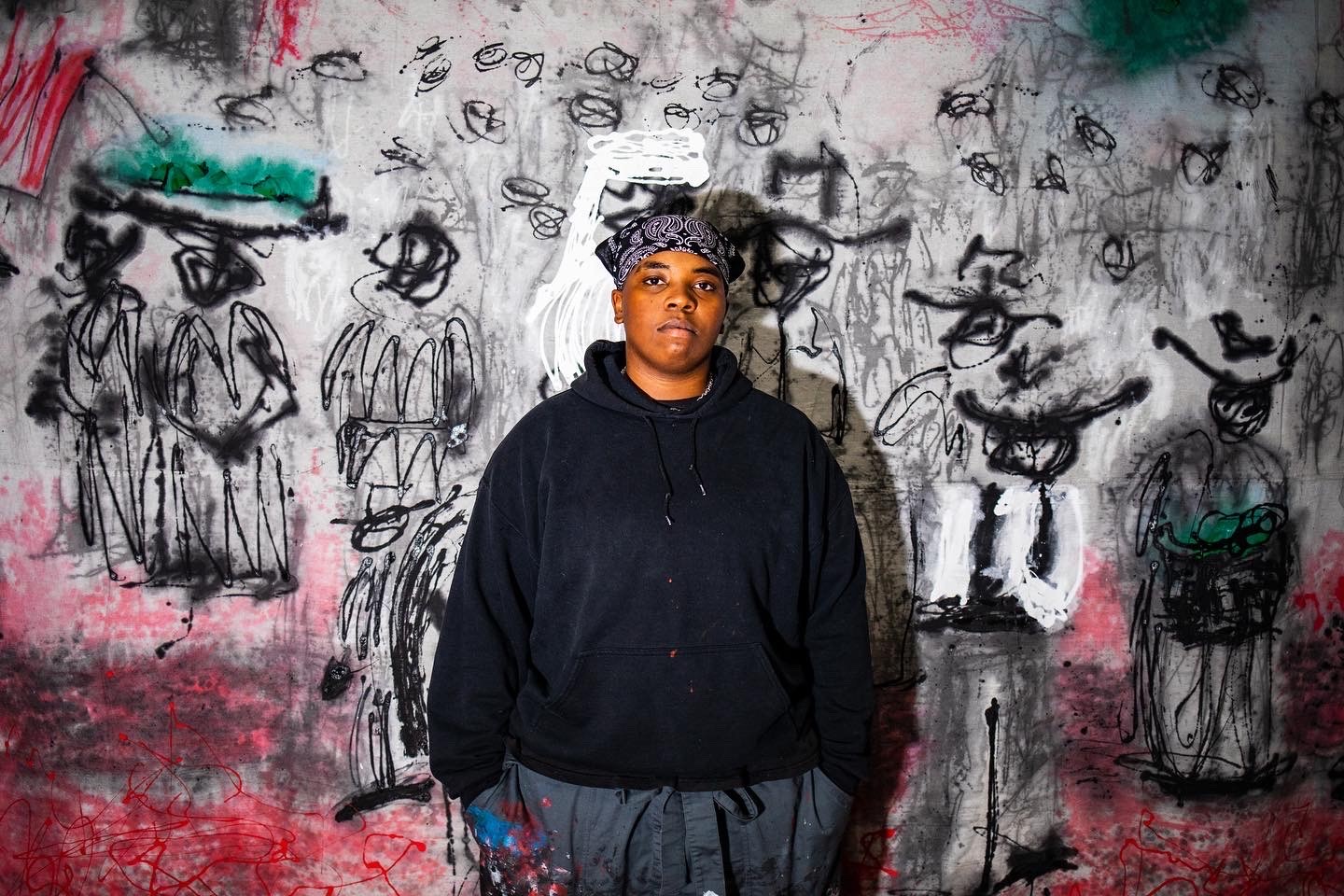Alright – so today we’ve got the honor of introducing you to Bianca Walker. We think you’ll enjoy our conversation, we’ve shared it below.
Bianca, appreciate you joining us today. I’m sure there have been days where the challenges of being an artist or creative force you to think about what it would be like to just have a regular job. When’s the last time you felt that way? Did you have any insights from the experience?
I suffered from depression throughout middle and high school. College was when I first began to take art seriously and it changed my entire life. Waking up to creative tasks as opposed to things that I felt like I couldn’t completely put myself into making a world of difference in every aspect of my life. Especially my mental health. Once I began pursuing art a blank canvas represented an opportunity for me to express myself endlessly and as a black queer individual it’s probably the first and only time, I’ve ever felt that extent of freedom, so I came to craft my practice and lifestyle after that feeling and came to understand the power of the erotic.



Awesome – so before we get into the rest of our questions, can you briefly introduce yourself to our readers.
I entered art through academics officially, before college it was more of a hobby. I picked up painting my first semester of school and have since fallen in love and practiced it every day. As an artist, there is always pressure to extend your practice in different directions, but painting has a hold on me, and I have come to embrace that obsession and view it as love as opposed to a crutch and it’s led me to paint in a way that truly expresses a love for the medium. I’ve eliminated brushes from my practice as a way of expressing the form as the liquid that it is while still maintaining enough control to communicate black portraiture. I think expressing true black images combed from archives while embracing this freestyle puts me in a position to communicate with an audience in a gallery or museum the importance of our history and the importance of our present ideas as a collaboration instead of contrast. There’s a tendency of white supremacy to create these separations of us with our pasts and each other because of place, ethnic background, class, etc. My paintings provide the space to see the entirety of blackness as a unit created in a way that operates outside of many western artforms especially because the style of painting hasn’t been done before. It’s a recognition of our innovation and ability to move forward as a people when we aren’t inhibited by whiteness.
Are there any books, videos, essays or other resources that have significantly impacted your management and entrepreneurial thinking and philosophy?
The Power of the Erotic an essay by Audre Lorde changed my life. They describe the practice of feeling to our fullest extent as people and not to be confused with a sexual erotic where we are also limited, the power of the erotic is the idea that we have an extent of feeling and pushing those boundaries and extents by participating in our emotions is important because those feeling provide clarity. I often apply this philosophy to painting in that I see it as truly endless and frameless which allows me to create in a way that emotes the amount of energy I have inside me that previously went ignored.


For you, what’s the most rewarding aspect of being a creative?
The most rewarding aspect of being an artist is getting to share the knowledge I learn during my process When I began creating the work in reference to history, I realized a lot of the information I was accessing wasn’t common knowledge when things such as riots, and wars, and specific laws only ordained for black and brown people absolutely should be publicly advertised through education. Being able to provide a creative bridge to this information through painting is really exciting because it makes them worth a lot more than just being paintings their portals to a history that could free us.
Contact Info:
- Instagram: biancawalkerart
Image Credits
Caleb Jackson


